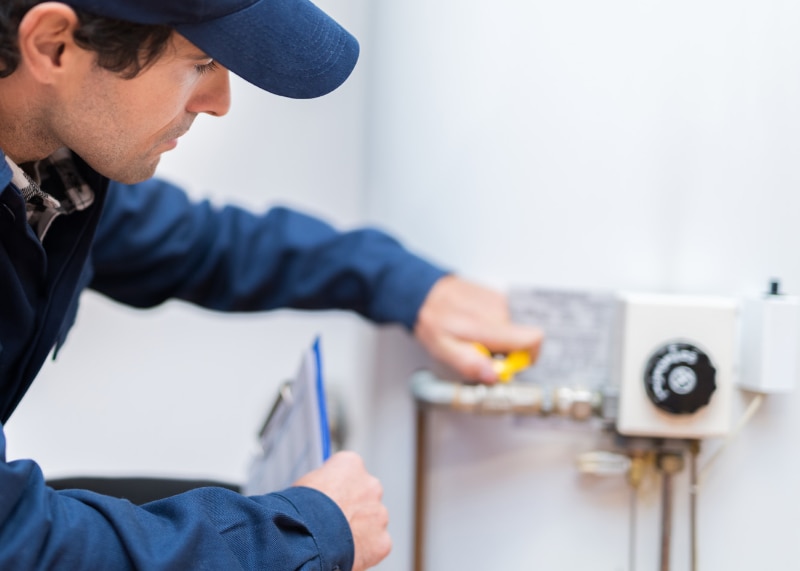Most Heater Problems
Most Heater Problems
Blog Article
In this article below you can discover lots of great information pertaining to Water Heater Repair and Troubleshooting.

Imagine starting your day without your regular warm shower. That already establishes an inadequate tone for the rest of your day.
Every home requires a reputable water heater, yet just a few know just how to handle one. One very easy method to keep your hot water heater in top form is to check for faults consistently as well as repair them as soon as they show up.
Remember to shut off your water heater before smelling about for faults. These are the water heater faults you are more than likely to experience.
Water too warm or as well cool
Every water heater has a thermostat that figures out just how warm the water gets. If the water entering into your residence is too warm regardless of establishing a hassle-free maximum temperature level, your thermostat may be damaged.
On the other hand, also cold water might result from a fallen short thermostat, a busted circuit, or inappropriate gas circulation. As an example, if you make use of a gas hot water heater with a damaged pilot light, you would obtain cold water, even if the thermostat remains in best condition. For electrical heating systems, a blown fuse may be the offender.
Not nearly enough warm water
Water heaters can be found in lots of dimensions, depending upon your hot water needs. If you run out of warm water before every person has actually had a bath, your hot water heater is too tiny for your family size. You ought to take into consideration setting up a bigger water heater storage tank or going with a tankless water heater, which takes up less room and is much more sturdy.
Strange noises
There are at the very least 5 kinds of noises you can learn through a water heater, but the most common interpretation is that it's time for the water heater to retire.
First of all, you must recognize with the typical sounds a water heater makes. An electric heating unit might seem different from a gas-powered one.
Standing out or banging audios typically indicate there is a piece of debris in your storage tanks, as well as it's time to clean it out. On the other hand, whistling or hissing audios might merely be your valves allowing some stress off.
Water leaks
Leaks might come from pipelines, water links, valves, or in the worst-case scenario, the container itself. Over time, water will certainly rust the container, as well as find its escape. If this happens, you require to replace your hot water heater as soon as possible.
Nonetheless, prior to your change your entire storage tank, be sure that all pipes remain in place and that each shutoff functions perfectly. If you still need assistance recognizing a leakage, call your plumber.
Rust-colored water
Rust-colored water implies one of your hot water heater parts is corroded. It could be the anode rod, or the storage tank itself. Your plumber will certainly be able to identify which it is.
Lukewarm water
Regardless of exactly how high you established the thermostat, you will not get any type of hot water out of a heating unit well past its prime. A water heater's efficiency may lower with time.
You will also get warm water if your pipelines have a cross connection. This implies that when you turn on a faucet, warm water from the heating unit flows in along with routine, cold water. A cross connection is simple to spot. If your warm water faucets still pursue shutting the hot water heater shutoffs, you have a cross link.
Discoloured Water
Corrosion is a major cause of filthy or discoloured water. Corrosion within the water tank or a falling short anode rod might create this discolouration. The anode rod shields the storage tank from rusting on the inside and also ought to be examined yearly. Without a rod or a properly operating anode rod, the warm water quickly rusts inside the tank. Get in touch with a professional water heater professional to determine if replacing the anode rod will deal with the problem; if not, replace your water heater.
Conclusion
Ideally, your water heater can last 10 years before you require an adjustment. Nonetheless, after the 10-year mark, you might experience any of these faults more routinely. At this point, you should include a brand-new water heater to your budget.
How To Troubleshoot 3 Common Water Heater Problems in Twin Cities
The Water Heater Is Leaking
A leaky cold water inlet valve A loose pipe fitting A leaky temperature and pressure relief valve A corroded anode rod A cracked tank Turn Off Your Water Heater:
Shut off your gas water heater by turning the gas valve on the unit to the “OFF” position. Shut off your electric water by switching its power off at your electrical panel. Look for a two-pole breaker labeled “water heater” and turn it to the “OFF” position. Move the ball valve connected to the water heater to be perpendicular to the piping at a 90° angle. Look for the Leak:
Depending on whether the water is coming from the tank's top or bottom, you’ll want to look for the leak in different locations.
If the leak comes from the top of the tank, carefully look for water escaping from the cold water inlet valve or loose pipe fittings. Rusted hot and cold water valves can have loose connections with the tank, with water leaking out of them.
https://mspplumbingheatingair.com/blog/how-to-troubleshoot-3-common-water-heater-problems
I'm just very curious about Common Problems with Tank Water Heaters and I am assuming you liked the page. Are you aware of anybody else who is fascinated about the niche? Feel free to promote it. I am grateful for your time. Please check our blog back soon.
Affordable? Call now! Report this page